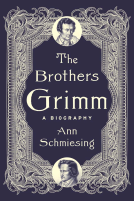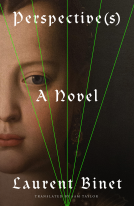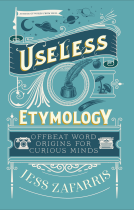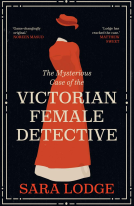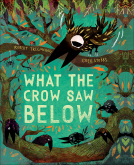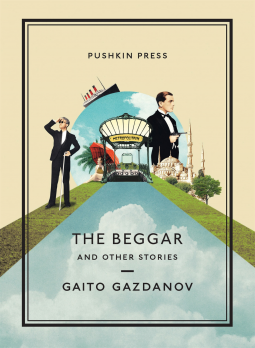
The Beggar and Other Stories
by Gaito Gazdanov
This title was previously available on NetGalley and is now archived.
Send NetGalley books directly to your Kindle or Kindle app
1
To read on a Kindle or Kindle app, please add kindle@netgalley.com as an approved email address to receive files in your Amazon account. Click here for step-by-step instructions.
2
Also find your Kindle email address within your Amazon account, and enter it here.
Pub Date Sep 25 2018 | Archive Date Jun 15 2018
Pushkin Press | Pushkin Collection
Talking about this book? Use #TheBeggarAndOtherStories #NetGalley. More hashtag tips!
Description
In a Metro underpass, bald and dressed in rags, stands a silent beggar. In the evening, he walks the deserted streets of Paris; at night, he sleeps in a small, foetid crate vacated by the death of another beggar. He is poor and he is ill, but, on reflection, he is free.
Never published before in English, this marvellously translated collection of tightly written, lyrical works represent marvellously compact miniatures of all the major strands that Gazdanov explores in his novels. The senselessness of life, the nature of fate, and the richness of the inner life - these brilliant and moving stories have it all.
Advance Praise
'A publishing event... and much, much more... How to define the genius of Gaito Gazdanov, the boy who stared certain death in the eye? He understood how human beings struggle to live in the world while shouldering the burden of their obsessive thoughts, fears, desires, and regrets.' — Los Angeles Review of Books
'Beautifully-crafted… translated and published in English for the first time, this collection of miniature tales has everything, ranging from a secret mission to an extramarital affair.' - Cub magazine
'The Gazdanov revival... is nothing short of a literary event' - TLS 'Gazdanov is a modernist master.' - Irish Times
'Gazdanov's work is the perfect fusion of the Russian tradition and French innovation.' - London Review of Books
'He has his own utterly distinctive voice... Pushkin Press is to be congratulated on reviving an author who is as relevant now as ever.' - Spectator
'This is an original at work.' - The Times
'A fascinating writer.' - Irish Times
‘The six stories in this new volume exemplify Gazdanov’s skill as a writer… As stories, Gazdanov’s tales can be thrilling and virtuosic.’ - Bookanista
‘Permeated by a sense of melancholy, the stories provide a riveting glimpse into the author’s turbulent life and times.’ — The Lady
"Dark, beautiful magics awaits in these pages… a must buy." — Hits the Fan
"An extraordinarily rich collection… while I was reading it I couldn’t help thinking what a wonderful job Pushkin are doing bringing Gazdanov to us." — Kaggsy’s Bookish Ramblings
'Of course, you sense yourself that you are very talented. And I want to add that you are talented in your own, very special way. I can say this with some justification, because I have read... some of your short stories.' - Maxim Gorky
'His writing has been described as "if Nabokov wrote thrillers". I'm hooked.' - Observer
'Gazdanov owes a debt from the grave to his translator Bryan Karetnyk.' - TLS
Available Editions
| EDITION | Other Format |
| ISBN | 9781782274018 |
| PRICE | $18.00 (USD) |
| PAGES | 224 |
Featured Reviews
 Mandy J, Reviewer
Mandy J, Reviewer
Émigré Russian writer Gaito Gazdanov is perhaps not as well-known as his contemporaries, such as Nabokov, and this collection of 6 of his stories from Pushkin Press is to be welcomed, as it’s a wonderful introduction to his work for anyone not familiar with it. Over a long writing career he wrote 9 novels and over 50 short stories, and the half dozen presented here span that career, from the 1930s to the 1960s. Gazdanov’s characters are concerned with morality and the meaning of life while themes of loss, suffering, alienation and exile pervade the stories. They don’t make for cheerful reading, but I found all of them compelling and often moving. I particularly liked “Deliverance” in which Alexei Stepanovich becomes a rich man, but finds that his wealth is ultimately inconsequential and meaningless. A thought-provoking, yet always accessible collection, that feel seamlessly translated.
 Brandon C, Reviewer
Brandon C, Reviewer
This collection of six stories, elegantly rendered by Brian Karetnyk, introduces Western audiences to the work of emigre Russian writer Gaito Gazdanov. This collection features a wealth of genres and styles stretching nearly thirty years. In the opening story "Maitre Rueil," the protagonist ruminates on a life of migrant living and espionage en route to Moscow from Paris. What begins as merely thoughtful quickly turns into paranoia as Rueil is harassed by specters he has wronged from the past: a midnight encounter on a ferry with a boxer recalls Nabokov's "The Passenger." In his contemplative "Happiness," Gazdanov channels the contemplative mortality of the Tolstoy of "Ivan Ilyich;" in "The Mistake," a woman's adulterous liaison invokes "Anna Karenina." Gazdanov's most powerful moral statement comes in "The Beggar," about a wealthy aristocrat who gives up his money and chooses to live destitute on the streets of Paris, unable to rally himself from a tragedy that had taken places years before.
Gazdanov's style is not as elegant as Bunin, Paternak, or Nabokov, but the breadth of his experience certainly class him with the superior emigre writers.
 Swati N, Reviewer
Swati N, Reviewer
I have always loved reading Russian authors for their ability to delve deep into the psyche of life. I had never heard of Gaito Gazdanov before I got “The Beggar and Other Stories” from NetGalley and Pushkin Press (one of my favourite publishers now). Thank you for sending me the ARC for a review.
“The Beggar and Other Stories” is a collection of six vivid stories, each featuring one prominent character. The book opens with the story of “Maitre Rueil” in which the titular character is a spy. In the beginning, it appears like he has everything a man could ask for – prestige, women, and adventure. But then one day, suddenly and inexplicably, he is seized with “a sensation hitherto unknown to him, one of incomprehensible irritation and utterly inexplicable alarm. No one was there to see him off…” From there, we see the melancholic descent of a seemingly perfect man into one haunted by his past.
“Happiness” explores the touching bond between Dorin and his son Andre, which is disturbed when a stepmother, Madeleine, comes into the picture. The template might be old but Gazdanov’s treatment of it is certainly different.
In “Deliverance” Alexei Stepanovich comes into a lot of money but feels that his “omnipotent wealth” is just senseless and he “realized all the unbreakable horror of his life.”
“The Mistake” has overtones of Anna Karenina and features Katja, a bored housewife married to a kind man. But his “infallibility began to unnerve her sometimes – as if he were not a man, but a perfect, thinking machine.” Katja is tormented by an affair that she has with a younger man, and we see how her personality undergoes a sea change making her an insufferable person.
“The Beggar” is the glittering star in the collection. We meet Gustave Verdier, once a wealthy man, now a beggar who lives in a crate in Paris, in Champs Elysee. This ironically translates to Elysium Fields, the place where you find perfect happiness according to Greek mythology. Verdier is disillusioned with life and his wealth, and he decides to make himself disappear from his perfectly normal life, and live like a beggar.
Lastly, there is “Ivanov’s Letters”, where we meet Nikolai Franzevich who “seemingly” is a man of letters, cultured, and wealthy. He had few friends and they too don’t seem to know much about him. But the mystery begins to unravel and we are prompted to think about his very existence.
Clearly, the biggest theme that runs through all the stories is disillusionment with life. A numbing that overtakes the characters rendering them heavily lugubrious and spiritless. The motif of blindness (Dorin goes blind, Verdier listens to a blind boy play the accordion) is peppered throughout to, perhaps, reinforce the characters’ closing their eyes to life.
My personal favourites are “The Mistake” and “The Beggar”, the former for its Tolstoy-esque feel and the latter because there were long passages that just stood out like stars on a dark night.
“He was free now – because nobody needed him; he had no belongings, no money, no ability to influence anything anywhere, no ability to help or harm anyone in any way, in a word, nothing…”
How can you resist passages like this?
Although Gazdanov’s exploration of the human mind and life is not as incisive or destructive or shot through with passion like that of Tolstoy or Dostoyevsky it certainly gives us a look at modern life. Where the earlier Russian masters focused on intense emotions and feelings, most of Gazdanov’s characters are anaesthetized. This pervasive dullness is what infuses most of the stories with reality, holding up a mirror to modern life.
“…the majority of people feel constrained by those conditions that determine their existence. Their soul, their intellect demand something else, as though each of them needs to live several lives, and not just one.”
Bryan Karetnyk's brilliant and seamless translation of Gazdanov’s stories preserves their soul. Unlike the people in his stories who have lost theirs.
 Michael J, Educator
Michael J, Educator
Publications from Pushkin Press are always worth a look. This first few stories in this collection of six, set in Russia and French exile, are interesting enough, a little reminiscent of Nabokov but without his playfulness. However, the final two stories, The Beggar and Ivanov’s Letters, written towards the end of Gazdanov’s life, are really excellent, compact explorations of lives, meaningfulness and the process of writing, and living, stories. I hope Pushkin Press keeps publishing his work.
 Bonnye Reed F, Reviewer
Bonnye Reed F, Reviewer
Gaito Gazdanov is an excellent author, and these shorts, published for the first time in English, are exceptional. I had not been introduced to this author before - I will have to find his novels. I love the way he brings his story to light, and the mental gyrations delved in his protagonists.
I received a free electronic copy of this collection of short stories from Netgalley, Gaito Gazdanov and Brian Karetnyk, and Pushkin Press in exchange for an honest review. Thank you all for sharing your hard work with me.
